Reunification
For up-to-date information regarding the reunification of Penn State's two law schools, please click here.
For up-to-date information regarding the reunification of Penn State's two law schools, please click here.

Arguably, there is currently no greater threat to humanity than a nuclear war. Recently, prominent world leaders’ rhetoric has dramatically escalated and further opened the stage to a nuclear crisis. Tension continues to build and the crisis becomes more urgent each day. The notions of disarmament and nonproliferation have also become more significant as countries attempt to reduce nuclear weapons at a global scale, in hopes to deter mass destruction.
It is with this in mind that the Penn State Journal of Law and International Affairs invites you to its 2018 Symposium: “Nuclear Weapons, International Security, and Disarmament.”
The symposium is free of charge. Breakfast and lunch will be provided to all registered attendees.
The Pennsylvania Continuing Legal Education has approved this program for 6.0 hours substantive law, practice, and procedure credit and 0.0 hours of ethics, substance abuse, and professionalism credit. CLE Credits are free of charge for this event.
Any questions should be directed to Carlos Camandang at cmc47@psu.edu.
8:30 a.m. Breakfast, Registration, and CLE Check-In
9:00 a.m. Welcome and Introduction
Catherine Kellogg, Editor-in-Chief and Carlos Camandang, Managing Editor of Communications
9:05 a.m. Opening Remarks
Hari M. Osofsky, Dean of Penn State Law and Penn State School of International Affairs
9:15 a.m. “A Nuclear Bird in Hand: The Critical Importance of Preserving the Iran Deal and Creating Next Generation
Non-Proliferation Tools”
Alexandra Bell, Senior Policy Director at the Center for Arms Control and Non-Proliferation
10:15 a.m. “Fatal Error: Misplaying a Winning Hand on Sanctions and Diplomacy on the Korean Peninsula”
Ambassador Joseph DeThomas
11:15 a.m. “Russia and the US: A New Nuclear Arms Race?”
Thomas Countryman, Chairman of the Board of Directors of the Arms Control Association
12:15 p.m. Lunch
1:00 p.m. “Multilateral Nuclear Diplomacy During the Trump Administration”
Ambassador Laura Kennedy
2:00 p.m. “Nuclear Weapons and Nuclear Use”
Gen. C. Robert Kehler, USAF, Ret.
3:00 p.m. Panel Discussion
Moderated by: Russell L. Shaffer, Assistant Dean for Operations and Planning; Former Navy JAG Corps Captain
4:00 p.m. Closing Remarks
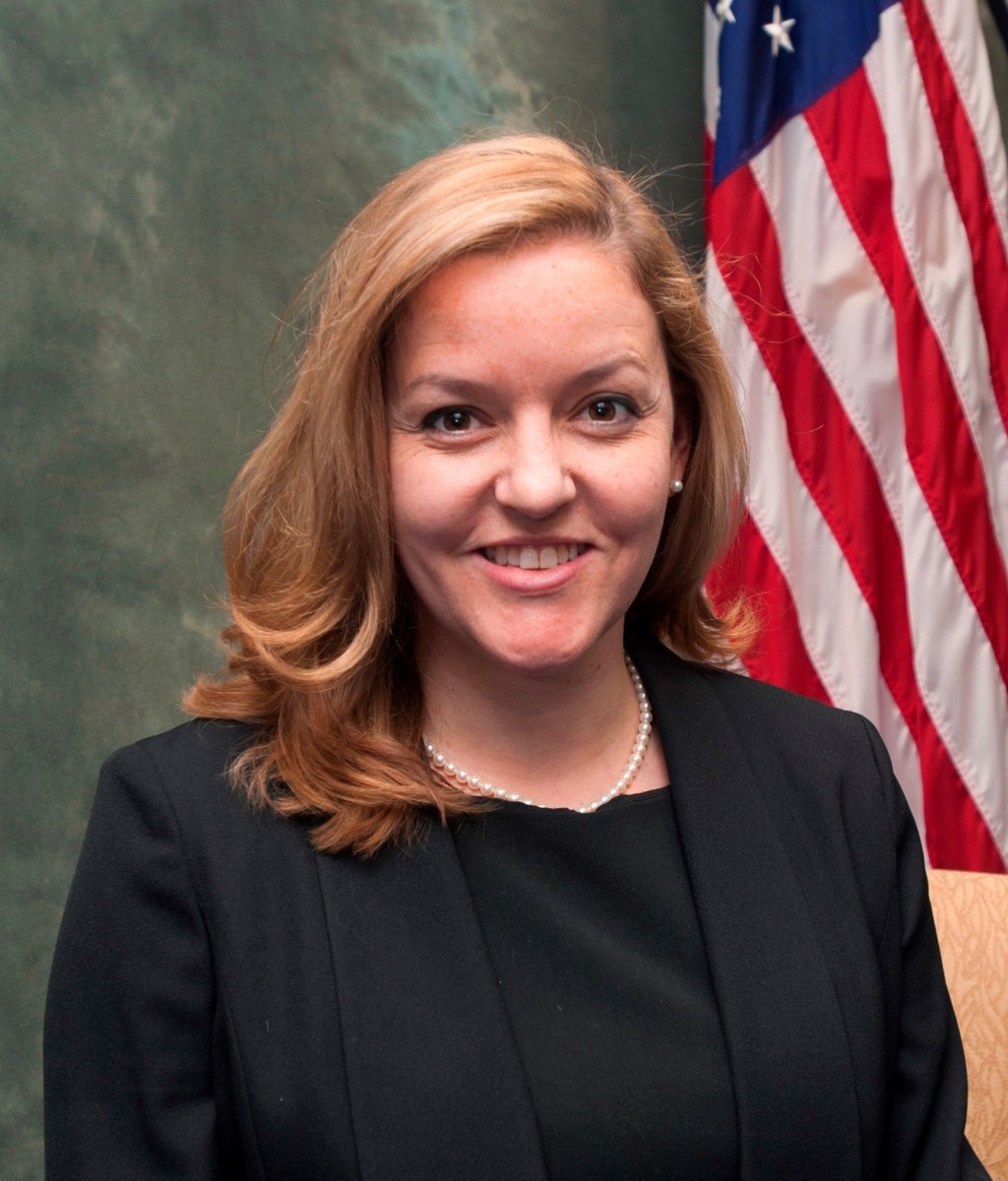 Alexandra Bell is the Senior Policy Director at the Center for Arms Control & Non-Proliferation. Previously, Bell served as the Director for Strategic Outreach in the Office of the Under Secretary of State for Arms Control and International Security. Before joining the Department of State in 2010, she was the Project Manager at the Ploughshares Fund and a Research Assistant for Nuclear Policy at the Center for American Progress. Bell received a Master’s degree in International Affairs from the New School and a Bachelor’s degree in Peace, War and Defense from the University of North Carolina at Chapel Hill. From 2001-2003, she was a Peace Corps Volunteer in southwest Jamaica. Bell is a Truman National Security Fellow, a 2012-2017 Council on Foreign Relations Term Member, a 2017 Munich Security Conference Young Leader, and a member of the Project on Nuclear Issues Mid-Career Cadre and the Younger Generation Leaders Network on Euro-Atlantic Security.
Alexandra Bell is the Senior Policy Director at the Center for Arms Control & Non-Proliferation. Previously, Bell served as the Director for Strategic Outreach in the Office of the Under Secretary of State for Arms Control and International Security. Before joining the Department of State in 2010, she was the Project Manager at the Ploughshares Fund and a Research Assistant for Nuclear Policy at the Center for American Progress. Bell received a Master’s degree in International Affairs from the New School and a Bachelor’s degree in Peace, War and Defense from the University of North Carolina at Chapel Hill. From 2001-2003, she was a Peace Corps Volunteer in southwest Jamaica. Bell is a Truman National Security Fellow, a 2012-2017 Council on Foreign Relations Term Member, a 2017 Munich Security Conference Young Leader, and a member of the Project on Nuclear Issues Mid-Career Cadre and the Younger Generation Leaders Network on Euro-Atlantic Security.
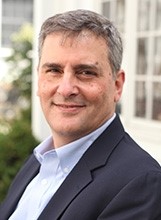 Professor Joseph DeThomas is a faculty member at the Penn State School of International Affairs. DeThomas is a former American ambassador and spent 29 years as a member of the U.S. Foreign Service and 32 years in the U.S. State Department. His service abroad included tours in Austria, Ethiopia, Germany, Iran, and Mexico. He was the U.S. Ambassador to Estonia from 2001 to 2004. He also held numerous positions in Washington over the course of three decades. This included two years of service as deputy assistant secretary of state for non-proliferation from 1999 to 2001 as well as a number of other positions that dealt primarily with proliferation sensitive countries including India, Iran, Iraq, North Korea, and Pakistan.
Professor Joseph DeThomas is a faculty member at the Penn State School of International Affairs. DeThomas is a former American ambassador and spent 29 years as a member of the U.S. Foreign Service and 32 years in the U.S. State Department. His service abroad included tours in Austria, Ethiopia, Germany, Iran, and Mexico. He was the U.S. Ambassador to Estonia from 2001 to 2004. He also held numerous positions in Washington over the course of three decades. This included two years of service as deputy assistant secretary of state for non-proliferation from 1999 to 2001 as well as a number of other positions that dealt primarily with proliferation sensitive countries including India, Iran, Iraq, North Korea, and Pakistan.
DeThomas served on the faculty of the National War College from 2004 to 2006. He received Meritorious and Superior Honor Awards for non-proliferation innovations, humanitarian contributions, and management as well as a group award for valor for service in Tehran, Iran.
After retiring from government service in 2006, he directed international science engagement programs in more than 20 countries at CRDF Global.
He returned to service in the U.S. Department of State from 2010 until February 2013 as an adviser. There, he worked primarily on Iran and North Korea, implementing sanctions and attempting to impede the weapons of mass destruction efforts of those two countries.
He is also a distinguished graduate of the National War College.
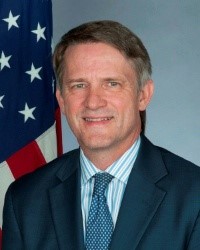 Thomas Countryman was chosen in October 2017 to serve as Chairman of the Board of Directors of the Arms Control Association. The ACA is a nonpartisan NGO, committed to analysis of key national security issues and to advising the executive branch, Congress and the public on choices that promote global security and reduce the risk that weapons of mass destruction will be used.
Thomas Countryman was chosen in October 2017 to serve as Chairman of the Board of Directors of the Arms Control Association. The ACA is a nonpartisan NGO, committed to analysis of key national security issues and to advising the executive branch, Congress and the public on choices that promote global security and reduce the risk that weapons of mass destruction will be used.
He retired from the Senior Foreign Service in January 2017 after 35 years of service. At that time, he served simultaneously as acting Undersecretary for Arms Control and International Security, and as Assistant Secretary for International Security and Nonproliferation, a position he held since September 2011. The ISN Bureau leads the US effort to prevent the spread of nuclear, chemical and biological weapons, their related materials, and their delivery systems.
Previously he served as Principal Deputy Assistant Secretary for Political-Military Affairs (2009-10), and as Deputy Assistant Secretary for European Affairs (2010-11), with responsibility for the Balkans region.
He served at the US Embassy in Belgrade (1983-85), and in Washington as the desk officer for Yugoslavia (1986) and for Bulgaria/Albania (1987-88). After an assignment to Cairo, he was responsible for advising Ambassador Albright on Middle East affairs at the US Mission to the United Nations (1994-97), and served as liaison with the UN Special Commission investigating Iraq's weapons programs. Mr. Countryman served as Director for Near East affairs on the National Security Council staff (1997-98), with responsibility for the region from Morocco to Syria, and was the White House representative on Ambassador Dennis Ross' peace process team. He attended the Senior Seminar course in 1998-1999.
He was Director of the Office of South Central European Affairs (1999-2001), and Minister-Counselor for Political Affairs at the US Embassy in Rome (2001-05). He served as Deputy Chief of Mission at the US Embassy in Athens (2005-08), including five months as Charge d'Affaires in 2007. In 2008-2009, he was Foreign Policy Advisor to the Commandant of the US Marine Corps, General James Conway.
He received Superior Honor Awards for his work in EUR, Rome, Athens and New York. In 2007, he received the Presidential Meritorious Service award.
Mr. Countryman graduated from Washington University in St. Louis (summa cum laude) with a degree in economics and political science, and studied at the Kennedy School of Government at Harvard. His foreign languages are Serbo-Croatian, Arabic, German, Italian and Greek.
He is a native of Tacoma, Washington. He and his wife Dubravka have two brilliant sons.
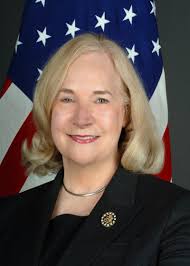
Laura Kennedy served almost four decades as a U.S. career diplomat. She spent much of her career working in or on the former Soviet Union and served multiple assignments in Geneva and Vienna on multilateral disarmament and non-proliferation (conventional, nuclear and biological) as well as a number of temporary assignments in New York, including the 2010 and 2015 NPT Review Conferences and heading the U.S. delegations to the UN Committee on Disarmament. She retired in 2013 but was recalled to service in 2014 to head U.S. missions in Turkmenistan and Vienna. She retired again in 2015.
Kennedy’s assignments included Deputy Assistant Secretary of State for Southern Europe, Central Asia and the Caucasus 2004-5, Ambassador to Turkmenistan 2001-3, Ambassador to the Conference on Disarmament in Geneva 2010-13 with concurrent service as U.S. Special Representative for Biological and Toxin Weapons Convention issues, Deputy Commandant of the National War College where she also taught for two years 2007-9, Charge d’Affaires in Armenia, and Deputy Political section chief in Moscow and Ankara.
Kennedy is an elected member of the American Academy of Diplomacy and serves on the boards of the World Affairs Council in DC, the Arms Control Association, Foreign Policy for America and the Advisory Council of the Center for Arms Control and Nonproliferation. She has lectured at various U.S. institutions including the U.S. Army General Command and Staff College, the Army War College, universities and local international affairs councils.
After receiving her B.A. from Vassar College, Kennedy did graduate work at Stanford and American (M.A.) universities and is also a graduate of the Senior Seminar of the Department of State for which she later served as Dean. She is married to retired U.S. diplomat John Feeney and has two sons, Martin and Patrick Feeney. She is an active tweeter at @AmbKennedy_ret.
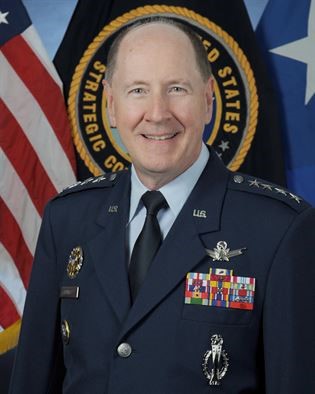 Gen. C. Robert Kehler, USAF, Ret., is a senior fellow for the National Defense University in support of the Pinnacle, Capstone and Keystone programs.
Gen. C. Robert Kehler, USAF, Ret., is a senior fellow for the National Defense University in support of the Pinnacle, Capstone and Keystone programs.
General Kehler served as the Commander, United States Strategic Command, Offutt Air Force Base, Nebraska, from January 2011 until November 2013.
As the Commander of United States Strategic Command, General Kehler was directly responsible to the Secretary of Defense and President for the plans and operations of all U. S. forces conducting global strategic deterrence, nuclear alert, global strike, space, cyberspace and associated operations. While in command, he crafted and implemented critical elements of policies and plans to deter strategic attacks against the United States and its key allies, and led a joint team of over 60,000 military and civilians to 100 percent mission success in multiple, high-stakes global operations. He also integrated Department of Defense activities for global missile defense, combating weapons of mass destruction, and intelligence, surveillance and reconnaissance. His forces directly supported combat operations in Southwest Asia and North Africa.
General Kehler’s military career spanned almost thirty-nine years of service that included progressively important operational and staff assignments. He was one of a very few officers to command at the squadron, group, wing, major command and combatant command levels, and he had a broad range of operational experience in Intercontinental Ballistic Missile, space launch, space control, space surveillance and missile warning units. Before taking command of USSTRATCOM, General Kehler commanded Air Force Space Command where he organized, trained and equipped over 46,000 professionals conducting mission-ready nuclear missile, space and cyberspace operations. In that role, he designed the Air Force’s inaugural blueprint, operating concept, organizational structure and personnel program to meet rapidly growing cyberspace challenges. Other command tours included the 508th Missile Squadron, 341st Operations Group, 30th Space Wing and 21st Space Wing. He also served as Deputy Commander, 351st Operations Group, Deputy Director of Operations, and as Deputy Commander of USSTRATCOM.
His staff assignments included tours with the Air Staff, Strategic Air Command, Air Force Space Command and the Joint Staff. He was also assigned to the Secretary of the Air Force’s Office of Legislative Liaison where he was the point man on Capitol Hill for matters regarding the President’s ICBM Modernization Program. As Director of the National Security Space Office, General Kehler integrated the activities of a number of DOD and Intelligence Community organizations on behalf of the Undersecretary of the Air Force and Director, National Reconnaissance Office.
He entered the Air Force in 1975 as a Distinguished Graduate of the Pennsylvania State University ROTC program, has master’s degrees from the University of Oklahoma in Public Administration and the Naval War College in National Security and Strategic Studies, and completed executive level programs at Carnegie-Mellon University, Syracuse University and Harvard University.
Alexandra Bell
Presentation Title: “A Nuclear Bird in Hand: The Critical Importance of the Preserving the Iran Deal and Creating Next Generation Non-Proliferation Tools”
Abstract: The Joint Comprehensive Plan of Action with Iran is an imperfect deal – so is every other arms control and non-proliferation agreement ever created. Myths about what the Iran Deal was and was not supposed to do should be dispelled and the hard work of implementation should continue. Instead of abandoning the agreement, the Trump Administration should enforce it and use the lessons learned from the implementation process to inform further diplomatic efforts and the creation of tools and techniques that will help with the verification of future agreements.
Ambassador Joseph DeThomas
Presentation Title: “Fatal Error: Misplaying a Winning Hand on Sanctions and Diplomacy on the Korean Peninsula”
Abstract: The Trump Administration inherited a very difficult situation in North Korea. That country's nuclear and missile programs are advancing at their fastest pace in decades and will pose a direct threat to the U.S. homeland in a relatively short time. The new Administration has -- on the one hand -- made vast progress on creating real sanctions pressure on North Korea, which should have lead to increased leverage for a favorable diplomatic solution. Yet, instead, it has made the situation immeasurably more dangerous -- increasing the risk of a war which might go nuclear to levels unheard of in the last 50 years. This is in part due to North Korean provocation but it is also due to a very flawed understanding of the region and nuclear realities in the White House. Barring a miraculous internal change in North Korea, there is no perfect solution to the crisis but any sound solution must balance many factors including international law, U.S. alliances, diplomatic engagement and nuclear deterrence policy.
Thomas Countryman
Presentation Title: “Russia and the US: A New Nuclear Arms Race?”
Abstract: The new Nuclear Posture Review issued by the Trump Administration February 2 called for the development of new nuclear warheads and delivery systems. A month later, President Putin delivered a speech outlining new delivery systems, and including a video of Russian warheads falling on Florida. These developments - and even more so, the political environment in which they occur - threaten the strategic stability sustained through the 70 years of the nuclear age. What steps can the international community and the US government take at this point to prevent a risky technological arms race?
Ambassador Laura Kennedy
Presentation Title: “Multilateral Nuclear Diplomacy During the Trump Administration”
Abstract: A stalled nuclear disarmament agenda threatens to further complicate the already difficult nonproliferation landscape for the Trump administration. Despite its increasing focus on military aspects of national power, the Trump Administration will need an active diplomacy to tackle challenges from competitors and to shore up vital alliances.
Gen. C. Robert Kehler, USAF, Ret.
Presentation Title: “Nuclear Weapons and Nuclear Use”
Abstract: While nuclear weapons were conceived to end a war, in the aftermath of their operational use at Hiroshima and Nagasaki, they became the central (and controversial) means to prevent a war. Offered from the perspective of a former senior nuclear commander, General Kehler will discuss the moral and legal legitimacy that underpin the credibility of the US nuclear deterrent.